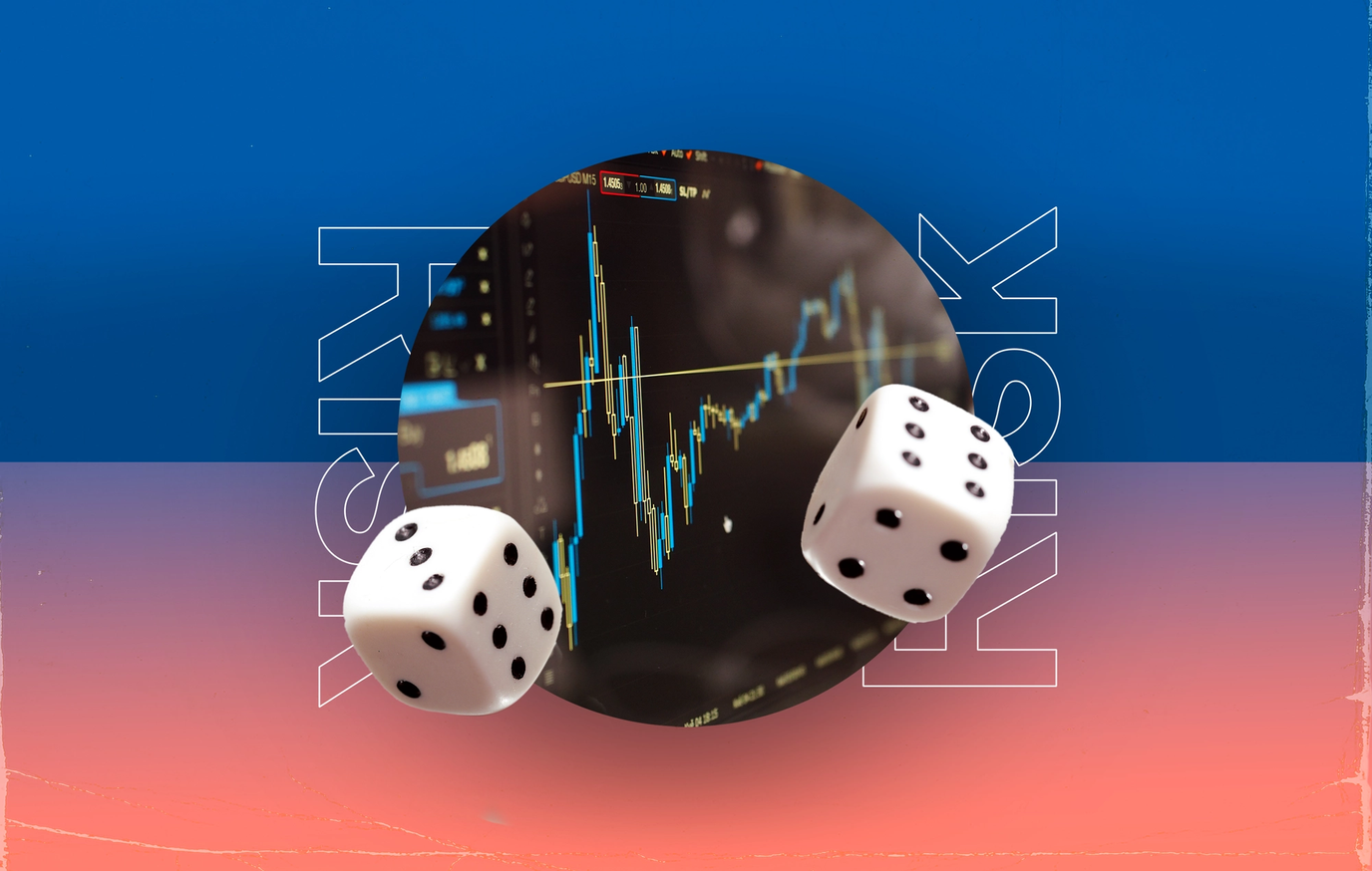
Rounding it up
Thanks to their lower costs and ability to diversify a portfolio, ETFs are considered low-risk investments.
That’s not to say ETFs are not risk-free.They can be tax-inefficient, generate high trading fees, and have low liquidity.
As with any other investment, you need to pick your ETFs carefully so you’re not caught off-guard if something unplanned occurs.
Your school may not have covered Investing 101, but there’s no reason not to try investing yourself. There is a vast world of investment opportunities, a tempting option being exchange-traded funds, or ETFs.
Overall, ETFs are designed to be low-risk, but nothing in life is without its risks. To make sure you get started with ETFs on the right foot, we’ve gathered all the most important information about them. You’ll see why ETFs are low-risk and get a better feel for the risks that remain. Then, you can make an educated decision on whether you want to invest in them.
What are ETFs?
First, let’s break down exactly what ETFs are. As mentioned, ETF stands for “exchange-traded fund.” It’s an investment product you can trade on most financial markets, just like you would a stock.
What makes them unique, however, is that they bundle and trade multiple assets, like bonds, commodities, and stocks, as one unit. Some are small and just track the price of a single commodity; others are big and include thousands of stocks and assets. Some are grouped by theme, while others are structured to follow a specific investment strategy. All in all, ETFs are very diverse.
Understanding the types of ETFs
Because ETFs can track the movements of various asset types, there are several different types of ETFs. In most cases, its name will give you a pretty clear idea of what it involves. For example, bond, commodity, and currency ETFs will include — you guessed it — bonds, commodities, and currencies, respectively. You can also choose an industry ETF that follows the overall movements in an industry.
A trickier type of ETF is the inverse ETF. Think of inverse ETFs as short stocks that let you make a profit even if the market is moving downward. You are unlikely to consider them as a beginner, but it’s good to be aware of them.
Why are ETFs considered low-risk investments?
Many investors consider ETFs low-risk. Why? It all comes down to diversification.
Diversifying your investments is an excellent way to reduce your risk. With a diversified portfolio, if one asset goes down, you likely have another asset that is increasing or at least stable. As yet another type of investment product, ETFs by their very nature can amp up your portfolio’s diversification.
ETFs are designed with built-in diversification. After all, anytime you can include hundreds or thousands of assets in a single instrument, it is likely to be highly diversified. This means that a large ETF automatically has more diversification and lower risk than a single stock.
Additionally, ETFs tend to offer lower expense ratios, making them lower-risk investment opportunities.
But nothing is perfect, and ETFs are no exception. They don’t overcome all of the risks associated with changing stocks or mutual funds. Plus, they add in a few extra risks you should be aware of.
ETFs and tax risk
ETFs and taxes have a complicated relationship. Some claim to be tax-efficient, while others can result in unpleasant tax surprises.
ETF tax efficiency
ETF tax efficiency comes from the way these funds use in-kind exchanges and authorized participants. Basically, ETF investors don’t have the same capital gains exposure as if they held the assets individually. The ETF’s manager will exchange an ETF unit for the stocks in the fund. That means that the authorized participant pays the capital gains taxes, not you.
The issue is that this mechanism only works for index, or passively-managed, ETFs. Even then, it may not apply to all index ETFs.
"Diversifying your investments is an excellent way to reduce your risk. With a diversified portfolio, if one asset goes down, you likely have another asset that is increasing or at least stable."
ETF tax inefficiency
If you choose an actively-managed ETF, you likely won’t get to take advantage of those tax efficiencies. In fact, you’ll get the opposite scenario because they don’t use the in-kind exchange for all of their selling. This leads to capital gains for the ETF and for you when it comes time to pay your taxes.
If you opt for an international ETF, the fund may not even have the option of doing in-kind exchanges for tax efficiency. Not all countries allow for this method, so if you invest in a fund that operates in one of those countries, you will need to expect tax inefficiencies.
You should also expect to pay capital gain taxes on any ETF that uses derivatives. There simply isn’t an in-kind exchange option. Leveraged and inverse funds commonly use derivatives, so keep this in mind before investing.
Commodity ETFs can also be complicated and result in capital gains taxes come tax season. To make it more complicated, there are several types of commodity ETFs, and each has different rules for your taxes. It’s best to talk to your tax accountant if you want to make sure you stick to tax-efficient ETFs.
Volatility risk — yes, volatility is still a concern
Even with the diversification you get from an ETF, you still have to think about volatility risks. Remember that volatility can increase both risks and rewards. If risk is your primary concern, you would want an ETF with lower volatility.
Minimizing the volatility risk
The good news is you can minimize this risk by opting for an ETF with a broader scope. An ETF that focuses on a single sector or industry will typically be a much more volatile investment. For example, an ETF that focuses on oil will be more volatile than the S&P 500.
Less control for You
Depending on how you feel about investments, the lack of control in ETFs may be an advantage or disadvantage for you. If you are new to investing, you will appreciate that experts choose the stocks and strategies in ETFs. This saves from conducting heavy market research; you don’t have to waste time watching videos about how to analyze markets or sitting in front of technical analysis deciding which stocks to buy.
At the same time, if you want to have complete control of your portfolio, these benefits become risks. You cannot practically vet each individual stock in an ETF unless you stick to smaller ones. And if you want to avoid a specific stock, you’d have to constantly monitor your ETFs.
Risks built into specific ETFs
As with any other type of investment you make, you have to consider the risk associated with the particular ETF you choose.
For example, if you choose an ETF that only has stocks from a single country, there are liquidity and political risks. If you choose an ETF that focuses on a given industry, there will be consequences if that industry collapses or undergoes challenging conditions. Consider the following risks before selecting an ETF.
Tracking error risk: An ETF’s potential tracking error refers to the difference between the target index and the index fund’s return. It’s usually very small, but some ETFs will have a higher tracking error.
Composition risk: This is the risk that comes from incorrectly assuming that all industry ETFs in a given industry (or that two similar ETFs) will deliver similar results. Remember that the performance of ETFs depends on what stocks and other instruments they hold.
Closure risk: This is the risk that your chosen ETF will close. If that happens, the funds will be liquidated, and you will be paid. While you still get your money, there are still transaction expenses and capital gains taxes.
Type of ETF risk: There are also some general categories of ETFs that tend to be riskier than others. Leveraged ETFs are a prime example due to their frequent value decay, leading some experts to suggest avoiding them completely.
SPEND SMARTER. SAVE FASTER
ETFs vs other investments — what’s riskier?
If you’re thinking about investing in ETFs, you are likely considering other types of investment as well. In that case, comparing the risk of ETFs to something more familiar may help provide perspective. After all, it’s all relative.
ETFs vs. mutual funds
ETFs and mutual funds are commonly compared as they are both baskets of securities.
A broad consensus stipulates that ETFs and mutual funds pose a similar level of risk. You can find an ETF that is riskier than a mutual fund and vice versa. It all comes down to the specific fund you choose.
That said, actively managed mutual funds are often safer, as the manager may take steps to reduce any risks. However, that is not always the case, and it will depend on the goals of the fund.
ETFs vs. stocks
As is the case with mutual funds, trading stocks and ETFs are similar when it comes to associated risks; it really depends on the situation.
For example, stocks may have less risk if you have thoroughly researched a company and its past performance. This type of individual research is much easier with stocks than ETFs, as ETFs contain multiple stocks.
On the other hand, ETFs can be the safe bet if you decide to invest in a sector with narrow return dispersion. In other words, if the various companies in a sector tend to have similar performance, ETFs tend to be less risky. You are unlikely to have significant gains by choosing the best stock in the sector than the worst. Therefore, ETFs don’t reduce your potential profits much, but they still give you the benefit of diversification.
The bottom line – are ETFs risky?
There are some risks associated with trading ETFs, but that is the case for any instrument you want to invest in. By their nature, ETFs tend to be low-risk, thanks to diversification and their lower costs. You just have to be mindful of potential risks, such as tax inefficiency, low liquidity, trading fees, or choosing the wrong ETF.
As long as you navigate these dangers with a cautious and informed attitude, ETFs can make a great addition to your portfolio.

About the author
Cedric Jackson is a crypto writer, sharing his experience to educate and inform people about Bitcoin, cryptocurrency, and blockchain technology, aiming to provide a global perspective on the events shaping the development of the new crypto economy.
Read more about this author